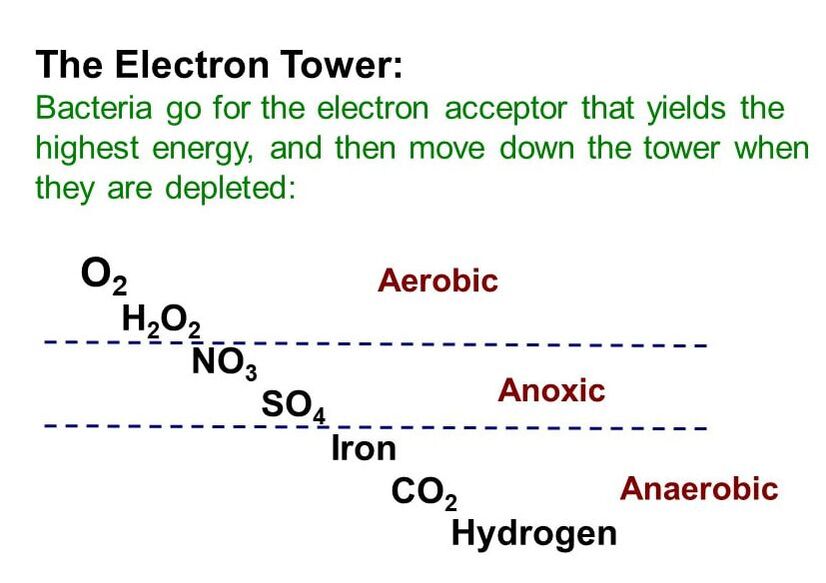We often use the term aerobic, facultative anaerobe, or anaerobe when talking about wastewater bacteria. These terms are great, but the lines are not as clean as you may think. Let's start with the general options.
It all starts with where the electron ends
Going back to the electron tower (pictured above), microbes generate energy for growth by moving the electron to the highest energy acceptor. If the terminal electron acceptor is oxygen, you have an extremely high energy yield. As you move to other electron acceptors, less energy is produced.
Terms that we use in wastewater
- Obligate aerobe
Only grows when oxygen is present. Often we say NItrosomonas (AOB) are obligate aerobes, but even Nitrosomonas has limited growth using alternative anoxic pathways. - Facultative anaerobe
In wastewater, a facultative anaerobe is any culture having the ability to grow when dissolved oxygen is not present. They can use various alternative electron acceptors. If they do not have an appropriate electron acceptor they do not grow. These are the most common cultures in wastewater treatment systems - example genera include: Pseudomonas, Bacillus, Zooglea, Thauera, & Paracoccus. - Obligate anaerobe
Here we have organisms that are poisoned by free oxygen. They only grow in reducing (low redox) environments. Here you have organisms found in sludge layers, inside dense granular floc, or anaerobic digesters. Common examples include Clostridium (an acid forming bacteria) and Methanogens (archaeal cultures that produce methane from short-chain organic acids and hydrogen). - Fermentative
This group includes some facultative anaerobes and obligate anaerobes! Fermentative respiration requires the terminal electron acceptor to be organic compounds. This is the acid forming step in anaerobic digesters. Fermentative respiration yields less energy than growth using oxygen, nitrate, nitrite, or sulfate as electron acceptors. - Microaerophilic
This includes cultures that thrive at low oxygen levels. They use oxygen as an electron acceptor but exploit a relatively low D.O. ecological niche.


 RSS Feed
RSS Feed